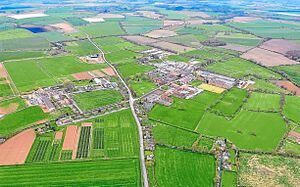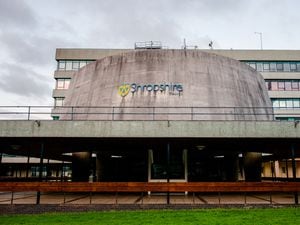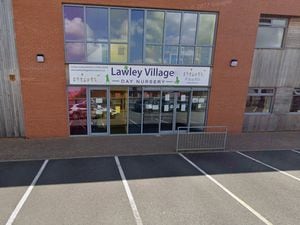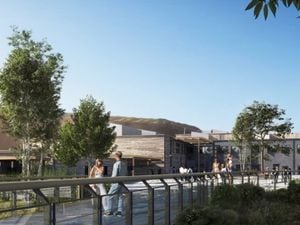Harper Adams University buys extra 240-acre block of farmland
Nearly 240 acres of farmland has been bought by a Shropshire's Harper Adams University.

Harper Adams bought the land adjacent to its home farm just outside Newport, saying it would allow for the continued training of high quality workers following Brexit.
The purchase brings the estate farmed by the university to a total of over 1,500 acres.
Bosses said that the land acquisition forms part of its long-term strategy to allow it to develop its education and applied research activities.
Vice chancellor Dr David Llewellyn said: "We had a rare opportunity to buy a substantial block of land immediately adjacent to the university’s estate and this matched, ideally, the strategy we had established for the development of our farm operations.
"The university has to think long-term and with confidence about its role in supporting the UK agri-food system, and supplying the high quality graduate workforce we will need in the period following our departure from the EU.
"We are therefore delighted to have completed this purchase, which will help secure our ability to continue to provide the best possible environment for our research, and for our students, in the years to come."
University farm manager Scott Kirby said: "The purchase of such a significant block of land by Harper Adams not only represents a strategic move to secure one of the university’s most important resources, but is also a clear demonstration that Harper Adams is committed to the future of its own farm enterprises and the industry as a whole.
Advantage
"Increasingly, much of the work carried out by the farm and our researchers is about developing farm scale systems that need larger areas. Equally important is ready access to our farm.
"Harper Adams has the unique advantage of being surrounded by its farmland. Students and researchers can walk straight out of their lecture theatres or laboratories onto the farm. The fact that this new land is adjacent to our current campus adds enormously to this capability.
"Ownership of the new land also allows us to take a long-term approach to the way we farm. We can concentrate on sustainable farming methods, such as building soil organic matter levels and establishing conservation initiatives, which can sometimes take many years.
"That has always been our institutional philosophy. We have been farming here for nearly 117 years, and that sense of history makes you acutely aware that we have a responsibility to ensure that there remains a viable farm for all those who come after us."





